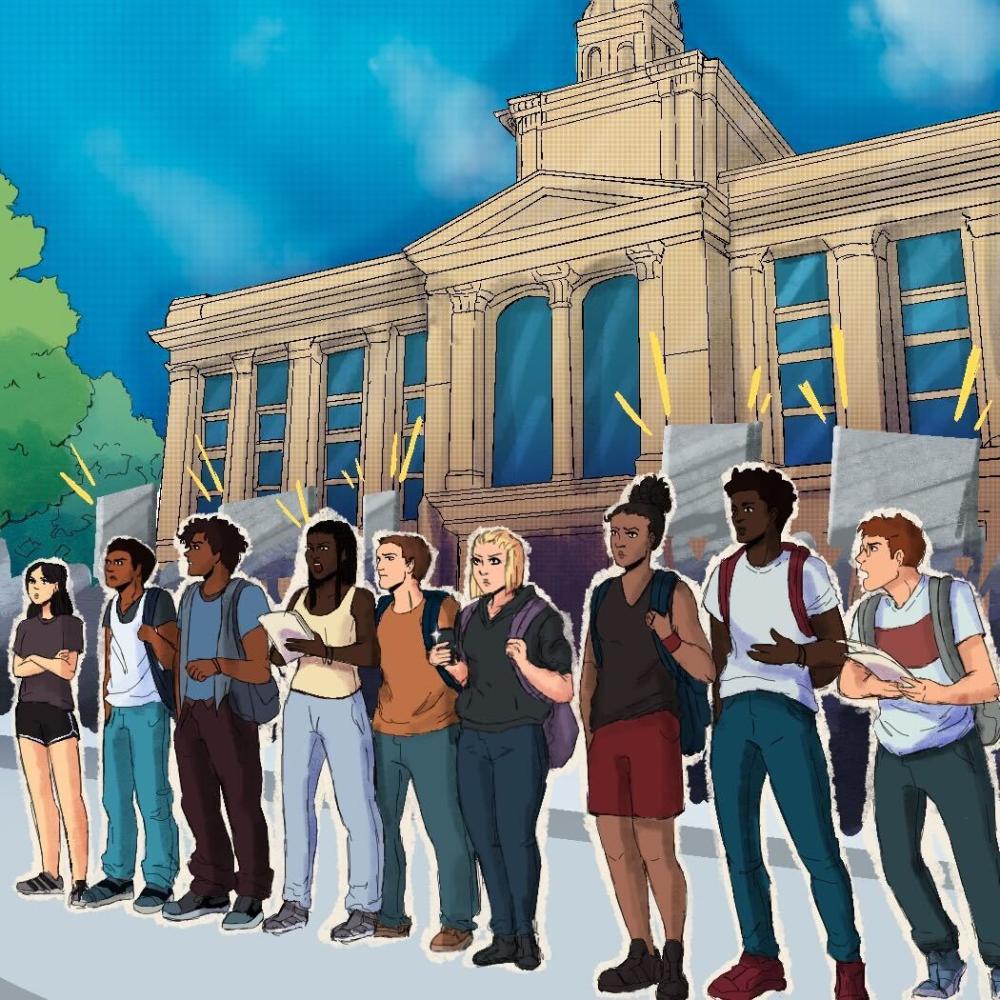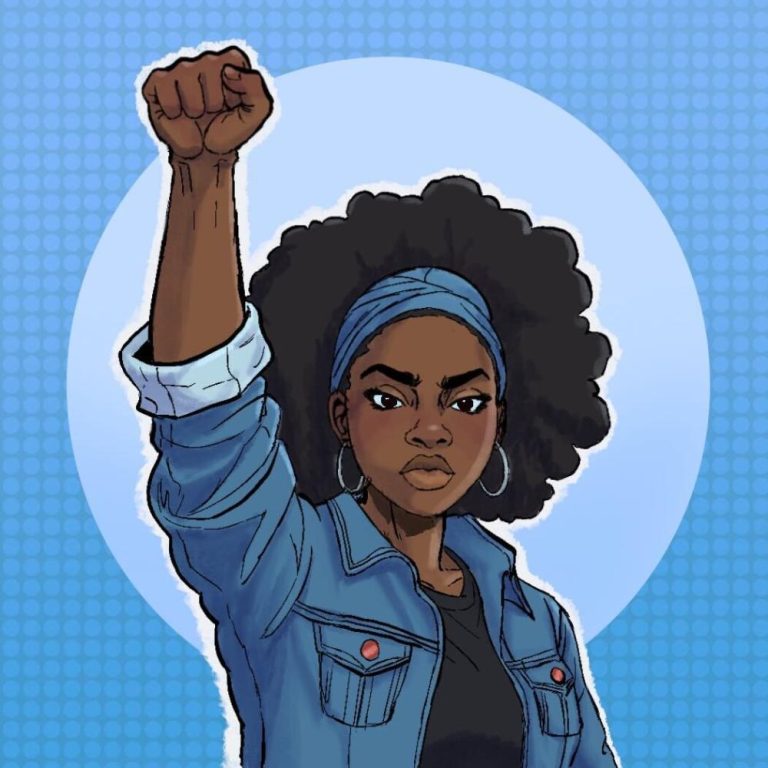Editor’s Note: The opinions expressed below in this article are those of the writer and are not meant to represent the Talisman as a publication.
The WKU chapter of Turning Point USA’s decision to host Kyle Rittenhouse, who was charged with the killing of two protestors at a Black Lives Matter demonstration in Kenosha, Wisconsin, is a calculated, blatant act of violence against the Black community and students of color on campus.
On Monday, March 11, WKU’s Turning Point USA announced on Instagram that it would host the “Rittenhouse Recap” on Wednesday, which, according to WKU’s Turning Point USA chapter, is where “Kyle Rittenhouse speaks about the importance of the Second Amendment and the lies of BLM.”
Hundreds of comments underneath WKU Turning Point’s Instagram post reveal pushback, anger and frustration at the decision.
Comments include “Will the Ku Klux Klan be there as well?”, “Will he be bringing an assault rifle with him?” and one person wrote that they are “ashamed to be a Hilltopper.”
Rittenhouse went viral in 2021 in the aftermath of driving across the state line from Illinois to Wisconsin while armed with an AR-15 and then killing two men protesting against the shooting of Jacob Blake, a Black man.
In 2021, he was acquitted and found not guilty on five counts, including first-degree intentional and reckless homicide. The Kenosha County Wisconsin District Attorney’s Office said it was “disappointed” in the decision.
It is disappointing that this conversation has to happen. Someone who travels across the nation to rile up crowds with his provocative rhetoric is not only a danger to Black students on campus but to the entire student body.
Payton Petkus, a junior education major from Rochester, New York, said he fears for the safety of students on Wednesday because Rittenhouse is an inciter of stochastic terrorism.
According to the Scientific American, stochastic terrorism is where “ideologically driven hate speech increases the likelihood that people will violently and unpredictably attack the targets of vicious claims.”
Petkus said he has seen an increase in stochastic terrorism with the rise of social media.
“For example, when COVID-19 first came out, Donald Trump called it the ‘Chinese virus,’ and we saw violence increase against Asian Americans. It wasn’t organized,” Petkus said. “There was no concerted effort, but it was the rhetoric that caused that violence to occur in the first place.”
Petkus said that while he believes Rittenhouse himself will not enact violence against students during his time here, the platform he uses might pose a risk for minority students.
“His entire platform is talking negatively about Black Lives Matter and arming yourself with guns. I don’t think he is going to hurt anyone, but who is he inviting?” Petkus said. “He’s inviting people to be the ones to hurt minority groups, specifically, in the case of Kyle, Black people.”
A now-deleted post from the WKU Turning Point account showcased an “edit,” or hype video, for Rittenhouse, celebrating his acquittal and making him out to be a hero because of it. This shows TPUSA’s endorsement of Rittenhouse’s rhetoric and violent acts.
While Rittenhouse was unaffiliated with any particular extremist group, his acquittal evoked support from “right-wing extremist groups, anti-government extremists and white supremacists,” according to the Anti-Defamation League.
It is clear: Rittenhouse’s rhetoric is the next ploy that may sow a deadly and race-based reaction he doesn’t have to take the blame for because others inspired by his words would act, not him.
On March 20, Rittenhouse spoke at the University of Memphis and was met with backlash from protestors. When asked how he felt about Turning Point USA’s organizer Charlie Kirk’s racist comments, Rittenhouse said he “didn’t know about that” and was subsequently booed off the stage, according to the Hill.

The reaction from the University of Memphis was just one of many. With Rittenhouse attending our campus, a I believe bigger reaction is expected and frightening to think about as a Black student.
I do not feel safe knowing a positive reaction to Rittenhouse’s rhetoric may endanger my life and others around me.
After receiving a call from my mother, a Black woman who has experienced threats in and outside of her workplace because of her identity, I began to feel the sinking feeling many Black students may have when thinking about race-based violence.
She urged me to be safe and take all protective measures, even discouraging me from attending a peaceful protest in fear armed supporters of Rittenhouse would feel emboldened by his speech.
No student should feel the need to take cover because of the damaging and inciting rhetoric of a speaker.
After the announcement on WKU Turning Point’s Instagram, an outcry of disappointment led to a series of emails sent to the student, faculty and staff bodies.
In an email sent to faculty, staff and students on Monday, two full weeks after the uproar Turning Point’s post caused, President Timothy Caboni said, “The capacity to disagree is a cornerstone of democracy, more important now than ever in our deeply polarized world.”
While it is important to disagree and have meaningful conversations in higher education about race and other topics, it’s discouraging to not hear whether there are any steps that will be taken to protect minority students when there is such a high risk for stochastic terrorism.
Risha Petty, a freshman from Houston, Texas, said she was afraid of the “inevitable” outcome of Wednesday’s “Rittenhouse Recap.”
“It’s a safety thing. He’s inspiring men to ‘gear up’ against us (Black people) and that’s scary, especially at a PWI (predominantly white institution),” she said.
Petty said that while many people may not think much will happen, many Black students like her may feel scared at the possibilities that aren’t there for their white counterparts, even those who disagree with Rittenhouse.
“He shouldn’t be on this campus. It’s a bad look,” she said. “Marginalized students will continue to feel less like we’re respected.”
Students, especially those who are historically marginalized and oppressed by institutions, should not be left in the dark about events like these.
Petkus urges all Black students and people of color to be vigilant and safe in all demonstrations.
“Once it’s over, then we can talk about it and do whatever we need to in this marketplace of ideas,” Petkus said. “But if I could say anything to any student, it would be just make sure you’re safe.”
Black students should feel safe and protected, and sadly, with the attendance of Kyle Rittenhouse on our campus, safety is a luxury.



